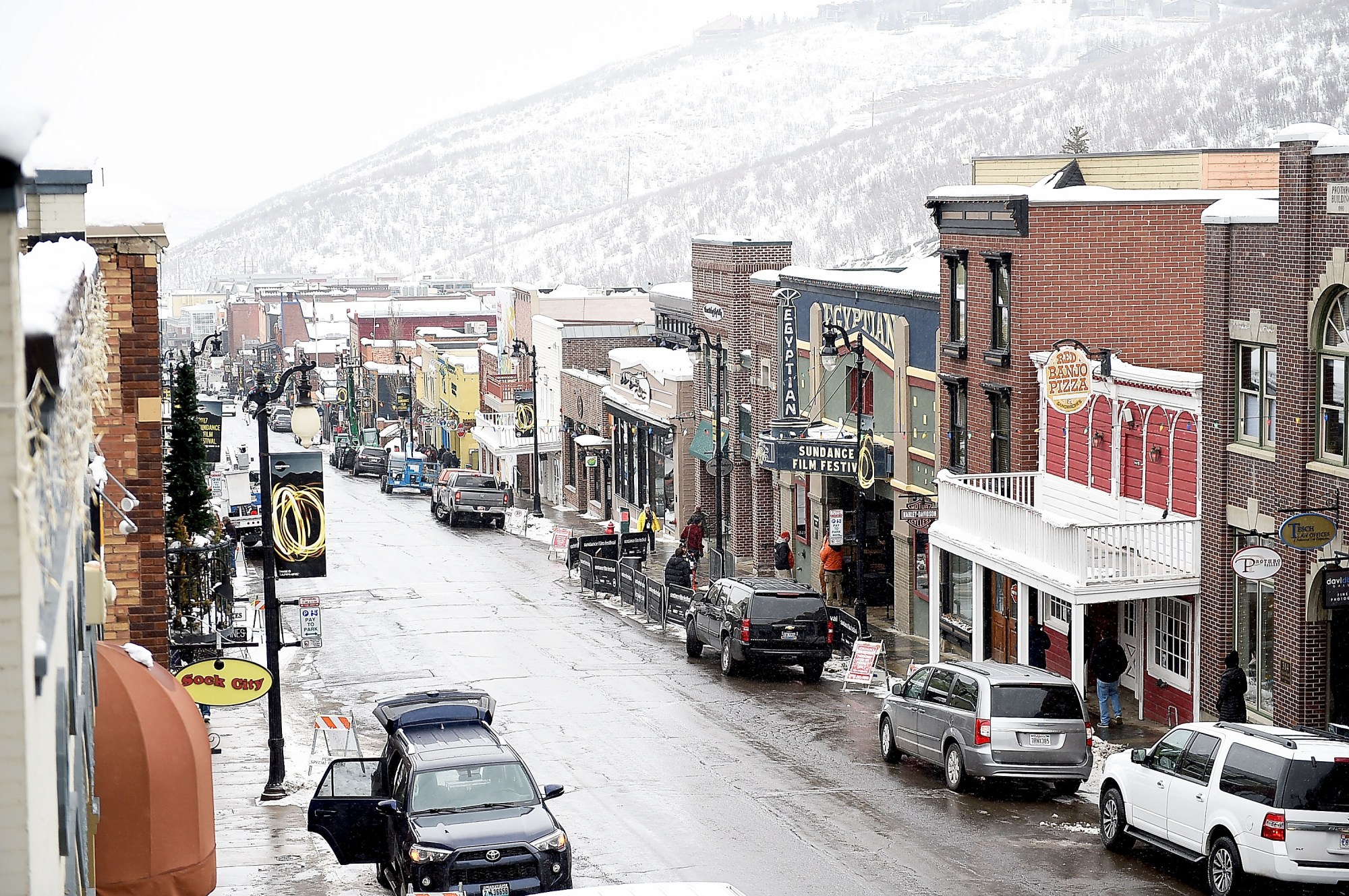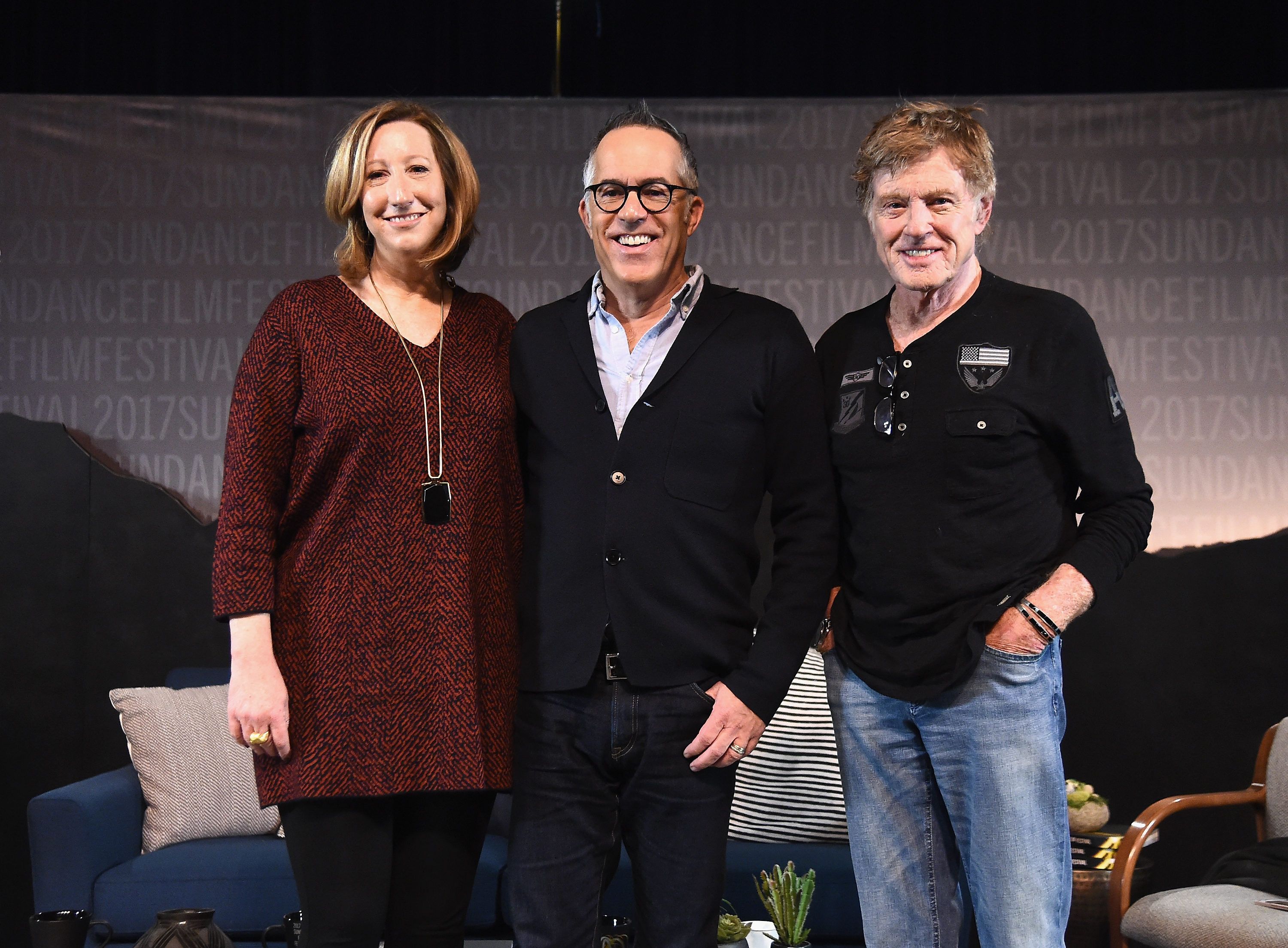
- Festivals
Sundance Braces for the Storm
PARK CITY – – The forecast in Park City calls for snow – that’s for five straight days, making this edition of the Sundance Film Festival possibly one of the whitest on record. Meantime the forecast was also less than sunny inside the Egyptian theater as the traditional Day One press conference got things under way with a discussion which inevitably repeatedly evoked the figure of Donald Trump and a political climate which will surely turn inclement towards the arts. Many reporters assembled to ask questions of Robert Redford – joined on stage by Sundance Institute Executive Director Keri Putnam and Festival director John Cooper – evoked the feeling of a coming ‘dark age’ and a sense of dread worthy of Jon Snow warning of a fast changing season.
Redford responded: “I think in terms of what’s going on right now, and a fearfulness (of) darkness closing in around us, you want to look to where the light comes from.” The veteran actor with a history of environmental activism acknowledged the likelihood of less than friendly policies towards the arts but professed optimism. “It seems a lot of things may be taken away from us and I think it will galvanize people who maybe in the past took some things for granted. And I think it will be followed by a movement rebelling against that (…) and I think that is very, very healthy.”

Executive Director of Sundance Institue Keri Putnam, Director of Sundance Film Festival John Cooper and President and Founder of Sundance Institute Robert Redford attend the Day One Press Conference during day 1 of the 2017 Sundance Film Festival at Egyptian Theatre, Park City, UT.
getty images
Putnam described proposed cuts to the National Endowment for the Arts, the Corporation for Public broadcasting and other arts funds, as a ‘statement’ on the arts and a threat to the “free expression and the equality and importance of all voices, diverse voices, which have been founding values of Sundance since its inception”.
This festival has been nothing if not engaged in the issues of the day and Cooper promised it would stay that way. Asked about the role of the festival which has traditionally offered a venue for independent film and opinions the artistic director said “We will do what we have always done. (…) What Indie film does is get you where you get stories of other people other places and get different angles. So we will support them. They may need more support and we will be there for that.”
Redford added that role of the festival was not to espouse political views but to foster and enable independent storytellers to tell those stories, even as he admitted being deeply influenced by his research with Bob Woodward and Carl Bernstein for All The Presidents Men. The way those investigative journalists pursued and told stories, said Redford, became part of his conception of what you could do in film.
“I always valued documentaries. Docs have become more and more important as the news media has shrunk into a soundbyte format – (…) so docs have the potential to become like long form journalism and really digest and explore how you feel about (an issue).”
A fitting intro for a festival which opened with a screening of Al Gore’s follow-up An Inconvenient Truth. The film directed by Bonni Cohen and Jon Shenk picks up 10 year after the Davis Guggenheim documentary: a decade later and with the world in a deepening global climate crisis, while attempting to glimpse at solutions. In Redford’s snowy Sundance a perfect storm of environmental filmmaking.